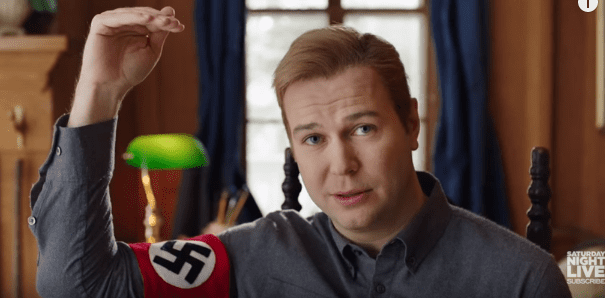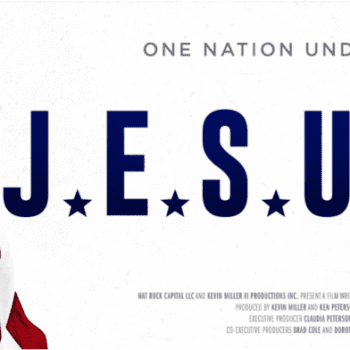
I watched Saturday Night Live’s skit “Racists for Trump” with a certain sense of glee. It shows average, nice looking, white Americans describe why they are voting for Trump.
“The media’s been saying some pretty negative things about Donald Trump,” the skit begins. “But what are real Americans saying?”
According to SNL, “real Americans” are saying:
The guys a winner.
He’s authentic.
He’s the only one who’s actually created jobs.
He literally wrote the book on negotiating.
Trumps an outsider. Washington needs that.
I think he could make this country great again.
I remember rolling my eyes at the Trump talking points, but then came the punchline: as the camera pans out on these “real Americans,” we discover that they wear swastika armbands and KKK robes. They hope for white power and they think there’s a Muslim conspiracy to take over the world. They not only burn books, but they also burn crosses.
And I laughed with glee at the punchline, “Hahah! Trump supporters are racists!”
It’s easy to make the case. Trump has bet his candidacy on tapping into racist elements within the United States. He says Muslims and Mexicans as a threat to the United States and he encourages violence against black people at his rallies. The xenophobic and racist overtones of Trumps campaign have led to a “tidal wave” of support from white supremacist groups beyond David Duke, including “the Loyal White Knights, Info Stormer, Daily Stormer, and Storm Front.”
Not all Trump supporters are white supremacists, of course, but the truth is that Trump is fomenting racism among many of his supporters. We should call out that racism for the evil that it is. And I’m thankful that SNL did just that. But there’s a danger here for white progressives like myself. Mimetic theory has taught me that whenever I gain a sense of glee at another’s expense, there’s a good chance I might be scapegoating them.
Could I be scapegoating racist, Nazi Trump supporters? Yes. And the genius of the SNL skit is that it reveals how I did just that.
The skit shows clean cut, average, nice looking white Americans. If you are a white American, the people in the skit could be a family member, a neighbor, or a co-worker. Heck, it could be you or me.
Sure, I’m not wearing a swastika armband or ironing a KKK robe. I speak out against overt racism when I see it. It’s easy for progressives to be against Donald Trump, the KKK, and other white supremacists. Unfortunately, getting rid of them is not going to rid ourselves of the racism that infects clean cut, average, nice looking white Americans.
At the Democratic debate on Sunday, Don Lemon of CNN referred to the musical “Avenue Q” and stated that “everyone’s a little bit racist.” He then asked the candidates this question, “What racial blind spots do you have?”
Every white American who wants to eradicate racism should ask that question to themselves. It’s easy to point to the racism of white supremacists; it’s much more difficult to point out our own racism and how we – clean cut, average, nice, white Americans – participate in racist structures.
For example, my wife and I want our children to go to good schools. That’s a good thing, of course. So, we’ve moved to a predominantly white neighborhood. We attend a largely white church and eat at white restaurants. Sure, there are some Asians and Latinos in the area. But whenever I see a black person, the thought crosses my mind, “What are you doing here?” It’s a malicious thought that comes from me – a nice, middle class, progressive, white American who works for racial justice. But there it is. It’s the “racial blind spot,” the underlying racist attitude, that infects me and I’m sure infects most of white America.
I’m more like those people in the Saturday Night Live skit than I’d like to admit. I participate in racist economic, educational, and political systems that exclude black people from good schools and good housing. We need to stand against the Klan, but that’s not enough. We need to stand against the racism that infects each of us. How do we do that? Jim Wallis has great advice in his latest book America’s Original Sin: Racism, White Privilege, and the Bridge to a New America,
Pay attention, read, listen. If you are white and have African American colleagues at work or friends at your church, ask them to talk with you about this, to tell you their stories – then listen. If you don’t have any black people or other people of color in your church, it’s time to ask why. Reach out, and ask your pastor to reach out, to black and Latino churches. We must find safe and authentic ways to hear one another’s stories across the racial boundaries that insulate and separate us from others … White people need to stop talking so much – stop defending systems that protect and serve us and stop saying, “I’m not racist.” If white people turn a blind eye to systems that are racially biased, we can’t be absolved from the sin of racism.















